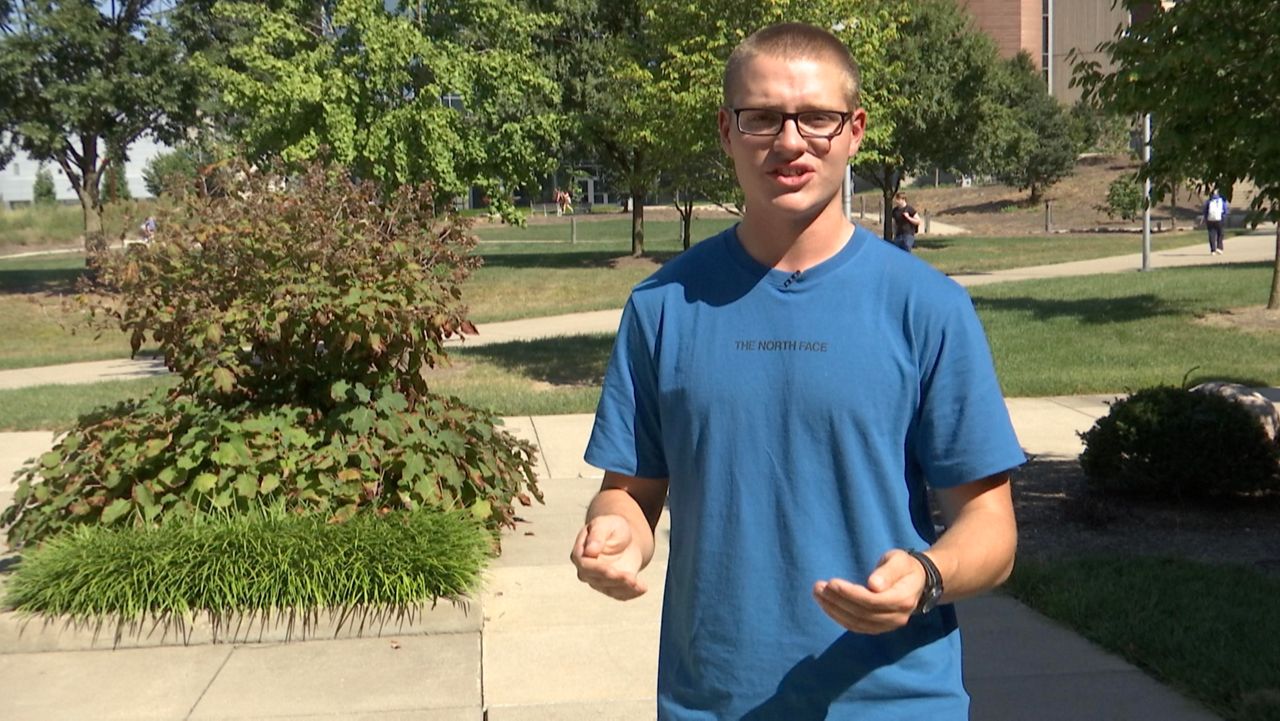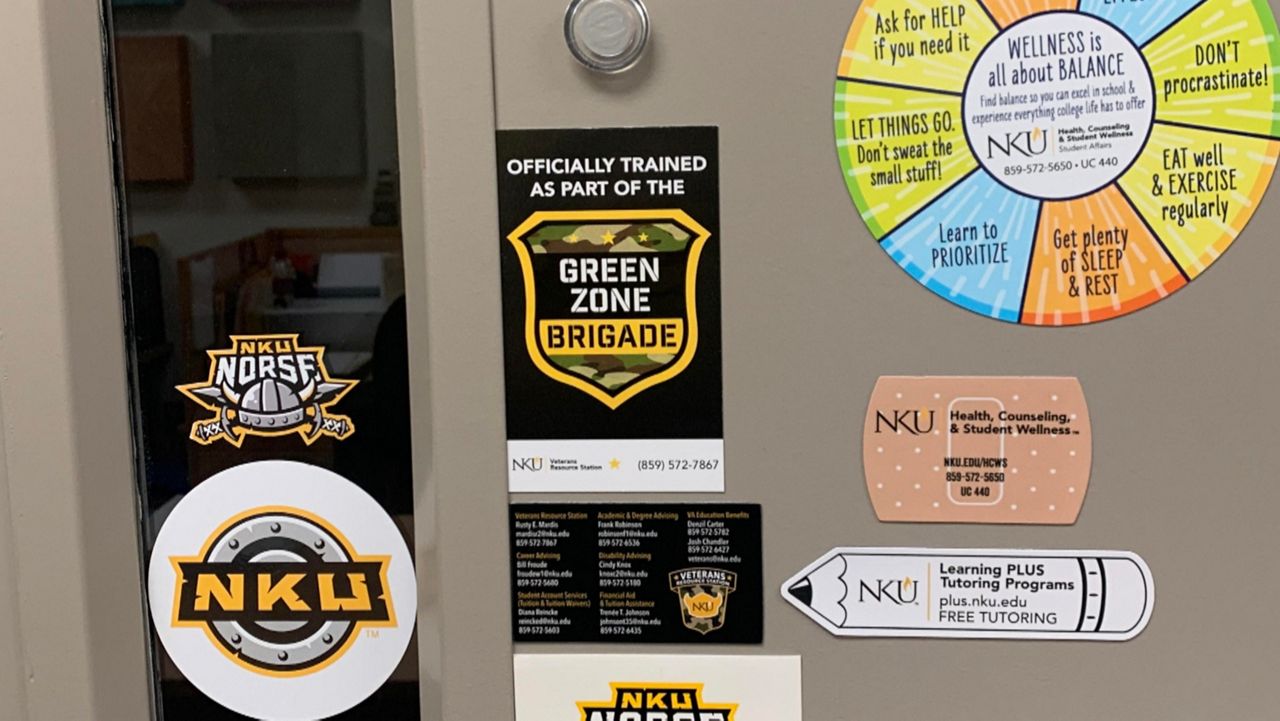HIGHLAND HEIGHTS, Ky. — A program at Northern Kentucky University is aiming to ease the transition for military veterans back into civilian life, a transition many veterans sadly struggle with.
What You Need To Know
- A program at NKU is training faculty members to be better adept at helping military students transition to civilian life
- 76% of veterans struggle with the transition back to civilian life
- Faculty members who take part in the training establish their classrooms as green zones, or safe spaces for military students
- One military student says he’s received significant support from green zone professors after coming back from basic training
Going from learning how to fire a military rifle to turning in an English paper can seem less meaningful, and certainly less exciting, by comparison. But that’s Nate Walther’s current reality, returning to NKU after basic training.
“And I just arrived about three weeks ago. So I’m fresh out of it,” Walther said. “It’s really just to serve your country. It’s just a great opportunity.”
A lot of things are different for Walther, a Villa Hills native, going into his sophomore year, especially in contrast to his recent experience.

“It’s a very, very strict, tight environment. Your schedule is always made for you. You know exactly what you’re going to do, because you’re told exactly what you’re going to do. And there’s lots of punishment for everything if you mess up,” he said. “But once you get back to the campus life here, it’s loose, it’s so much more freedom. Which is good. It’s good to have freedom, but it’s just a sudden change.”
Joining the military is something Walther said he has thought about since childhood, coming from a military family. He instead decided at the end of high school to enroll at NKU.
A coworker, however, convinced him to reconsider and join ROTC his freshman year. He then learned about the Simultaneous Membership Program, or SMP. Completing basic training, he joined the Kentucky National Guard, gaining access to tuition assistance, enlisted bonuses, and valuable experience as he’s able to continue his education at NKU.
“I got in [to basic training] pretty much at the last minute. But that meant I was going to miss the first two weeks of school, which can be kind of hectic, because I have to get all the professors to approve me missing those two weeks, and then I have to get all that signed off on.,” he said.

Many others who’ve felt the same calling to serve their country have had similar challenges, from catching up on schoolwork to much deeper seated issues, as NKU Veteran Resource Station Coordinator Rusty Mardis explained.
“To wake up one day and you’re not putting on the uniform again, and not knowing what your purpose and your passion is, what your drive is and what you’re going to do day to day,” Mardis said. “I got to a point where I was pretty low. I was very suicidal.”
Mardis was once a student himself at NKU. In between then and now, being back in his current role, were 24 years of service in the U.S. Air Force, and a very tough time re-acclimating when he returned home. That included finding a good job.
“My first initial thought was they don’t want me. Nobody wants me. Why am I not marketable?” he said. Eventually, he settled into helping other veterans who were struggling. “And I found I really enjoyed that. I love working with veterans.”
According to MissionTransition.org, 76% of all military veterans struggle to transition back into civilian life. That’s something Mardis is trying to change by establishing a Green Zone Brigade at NKU.
Much like a green zone is a safe space within a combat zone, faculty members who opt into this training establish their classrooms as green zones where they’re better prepared to help military students adjust. Mardis said 75% of all service members, when they transition out of service, will pursue higher education, using the educational benefits they’ve earned.
“Being part of the brigade means their office or their location is a safe zone for the military or veteran member to be able to come and talk to them,” Mardis said.
Walther said he thinks it’s a valuable asset for the university.
“I think it’s incredibly important for all the professors and teachers here to understand the complexities of being in the army,” he said. “It’s just better for the teachers to know how to deal with that when we come back. Because it’s a new environment, we come back to.”
Mardis said the program has opened the eyes of many staff members to the unique needs of veteran students.
Since it started last November, over 100 staff members have joined the Green Zone Brigade. They hope to foster more success stories like that of Walther, who, upon graduation, would commission as a second lieutenant in the U.S. Army, transitioning from the National Guard to active duty. Walther said he hopes to specialize in military intelligence.
NKU partnered with Northern Kentucky Tri-ED and the Northern Kentucky Chamber of Commerce to launch a website to directly connect veterans with resources.



